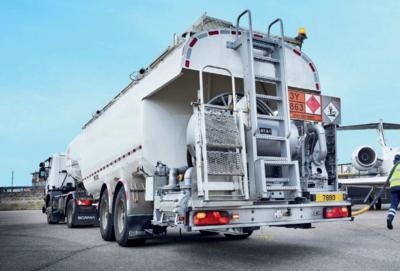Tue, Jan 31, 2023
Sustainable Fuel Production Insufficient to Meet Government Goals by 2030
The NASA administrator has affirmed the Biden admin's support for sustainable aviation fuel, announcing a partnership with Boeing to create a single-aisle, SAF-powered aircraft.

The Biden office has set a goal for the US to produce enough SAF to meet 100% of domestic jetA demand by 2050, when emissions from the industry are projected to make up a sizable proportion of the country's carbon emissions after decades of decarbonization in other sectors. Congress aimed to bolster SAF production in its 2022 package with a tax credit of $1.25 per gallon for jet fuel blended with a percentage of SAF, a step in the direction that will likely evolve over time to omit virgin petroleum as a feedstock altogether. The legislation also included $68 million in the fiscal 2023 government spending law to support carbon reduction efforts in the aviation industry, like provisions directing federal agencies to prioritize SAF research and development.
The boom in SAF production has continued to be outpaced now that legislators have begun to pay more attention to it, however. While companies from around the world have ramped up output of sustainable jet fuel, overall production remains somewhat niche and limited in availability, with an average of only 4.5 million gallons produced per year (2021). In order to meet White House goals, that number needs to climb to at least 3 billion gallons over the next 7 years. Take up also needs to improve, as Congress has attempted to solve with its foray into subsidies. Currently, awareness and availability are still low throughout the aviation industry, giving time for manufacturers to test their engines and aircraft on blended SAF and approve the combinations before widespread rollout.
SAF tends to sit at a pretty steep price point compared to standard jetA, like today's average of $9.30/gal SAF to $6.96 jetA in California. Sustainability and eco-friendliness are nice, but most Cost-conscious operators won't spring for an extra $2.34 a gallon for the warm fuzzies alone. Only economies of scale can bring that price down to reach, barring some full-on legal strong arming to strangle kerosene fuels out of the market, however unlikely.
“The lack of sufficient supply [of SAF] is the biggest issue right now,” said Geoff Cooper, president of the Renewable Fuels Association. “There’s some stuff being produced, but it’s a very small volume, and until we get more production facilities up and running, the cost is going to be high.”
More News
Its Offerings Are Lighter, Cleaner, and Now Pushing Past 1,000nm on SAF Jet Fuel DeltaHawk’s diesel-powered aircraft lineup has seen incredible upgrades over the last few yea>[...]
The Airplane Experienced A Total Loss Of Engine Power On December 3, 2025, about 1600 central standard time, a Mooney Aircraft Corp. M20K, N57229, was substantially damaged when it>[...]
Make Sure You NEVER Miss A New Story From Aero-News Network Do you ever feel like you never see posts from a certain person or page on Facebook or Instagram? Here’s how you c>[...]
Aero Linx: European Society of Aerospace Medicine (ESAM) As a pan-European, independent forum, it works to promote the safety and health of all persons involved in aviation and spa>[...]
“We are excited to see Wisk achieve this milestone, and I’m so proud of the team that made it possible. The team at Wisk has built advanced technologies across flight c>[...]
 Aero-TV: DeltaHawks Diesel Power Steps Into the Spotlight
Aero-TV: DeltaHawks Diesel Power Steps Into the Spotlight NTSB Prelim: Mooney Aircraft Corp. M20K
NTSB Prelim: Mooney Aircraft Corp. M20K ANN FAQ: Turn On Post Notifications
ANN FAQ: Turn On Post Notifications ANN's Daily Aero-Linx (12.20.25)
ANN's Daily Aero-Linx (12.20.25) Aero-News: Quote of the Day (12.20.25)
Aero-News: Quote of the Day (12.20.25)



